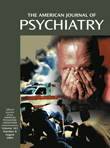A Psychology of Human Strengths: Fundamental Questions and Future Directions for a Positive Psychology
Positive psychology is the science of human strengths: energy, optimism, perseverance, kindness, humor, enthusiasm, ingenuity, and more. The 23 papers collected in the volume under review are the product of a 1999 conference of scholars in this burgeoning branch of psychology.
The book should have been of great interest, especially to psychotherapists. The 44 authors include leading researchers, among them Daniel Kahneman, winner of a Nobel Prize, and Martin E.P. Seligman, a president of the American Psychological Association and the most productive of the positive psychologists. Yet this book, like many conference-based books, is a disappointment destined to slumber unread on library shelves. Why postconference books so often are jinxed is a question for the sociologists of academia. The symptoms common to such efforts and apparent here include too sparing an application of the editors’ blue pencil, leaving the reader to slog through sentences, paragraphs, and even entire chapters that are banal, tautological, redundant, or indecipherable.
The best chapters are those by Seligman and Christopher Peterson, by Dale Griffin and Daniel Kahneman, and by Alice Isen. The last of these is a synthesis of dozens of research reports by Isen and her students and colleagues, all adding up to the conclusion that positive emotions, even mild positive emotions such as are induced by a smile or a small gift, have a substantial effect on cognition. People who feel better think smarter and act more constructively. The direction of the effect is no surprise; its strength—at least in the laboratory—is.
On the whole, though, readers who want to introduce themselves to the potential of positive psychology will do better elsewhere—with the excellent special issue of the American Psychologist edited by Seligman and Cikszentmihaly devoted entirely to the subject (January 2000) or the cumbersome but encyclopedic Handbook of Positive Psychology(1), for example.
1. Snyder CR, Lopez SJ (eds): Handbook of Positive Psychology. New York, Oxford University Press, 2002Google Scholar



